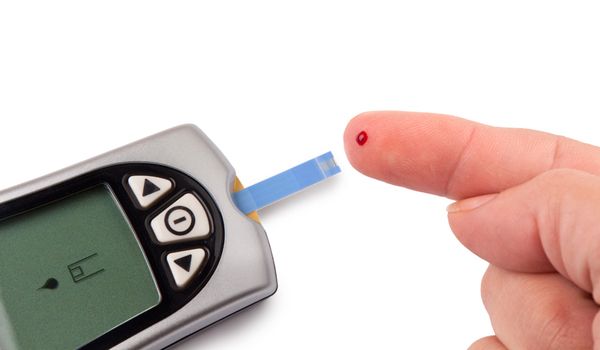Low Melatonin May Boost Diabetes Risk

Low levels of melatonin, a hormone involved in the sleep-wake cycle, may increase the risk of Type 2 diabetes in women, a new study suggests.
In the study, women who had low levels of melatonin at night had twice the risk of developing Type 2 diabetes over a 12-year period compared with women who had high melatonin levels.
That translates to about five extra cases of Type 2 diabetes per 1,000 people yearly among low-melatonin producers, compared with high-melatonin producers, the researchers said.
The link between low melatonin levels and Type 2 diabetes held even after the researchers took into account other factors that could increase the risk of diabetes, such as age, weight, physical activity levels and sleep duration.
The study only found an association, and cannot prove that low melatonin levels cause Type 2 diabetes.
But the findings raise the question of whether increasing people's melatonin levels, through supplements or prolonged exposure to darkness, could decrease diabetes risk, said study researcher Dr. Ciaran McMullan, of Brigham and Women's Hospital in Boston. [See Light at Night Bad for Health].
Previous studies have suggested melatonin could play a role in Type 2 diabetes. In one study, melatonin supplements fed to rats protected the animals from developing diabetes when fed a high-fat diet. In another, mutations in genes involved in melatonin signaling were linked with an increased risk of diabetes.
Sign up for the Live Science daily newsletter now
Get the world’s most fascinating discoveries delivered straight to your inbox.
The new study involved 370 women who developed Type 2 diabetes between 2000 and 2012 (but did not have the condition before the study's start), and 370 women who didn't develop diabetes. Urine samples were collected first thing in the morning as a way to measure melatonin levels produced overnight. (A byproduct of melatonin breakdown can be used to estimate melatonin levels.)
Factors that can lower melatonin levels include: sleep disturbances, short sleep duration, working the night shift and taking certain drugs, such as beta-blockers, said Dr. John Forman, also of Brigham and Women’s Hospital.
The study included mostly white women, so it's not clear if the results apply to men or to other ethnic groups, the researchers said.
And because more research is needed to confirm the findings, it's too early to recommend that people start taking melatonin to reduce their diabetes risk, Forman said. Researchers still don't know the best way to reproduce "normal" melatonin levels at night, he said.
The study will be published in the April 3 issue of the Journal of the American Medical Association.
Pass it on: Low levels of melatonin are linked with an increased risk of Type 2 diabetes.
Follow Rachael Rettner @RachaelRettner. Follow MyHealthNewsDaily @MyHealth_MHND, Facebook & Google+.

Rachael is a Live Science contributor, and was a former channel editor and senior writer for Live Science between 2010 and 2022. She has a master's degree in journalism from New York University's Science, Health and Environmental Reporting Program. She also holds a B.S. in molecular biology and an M.S. in biology from the University of California, San Diego. Her work has appeared in Scienceline, The Washington Post and Scientific American.












